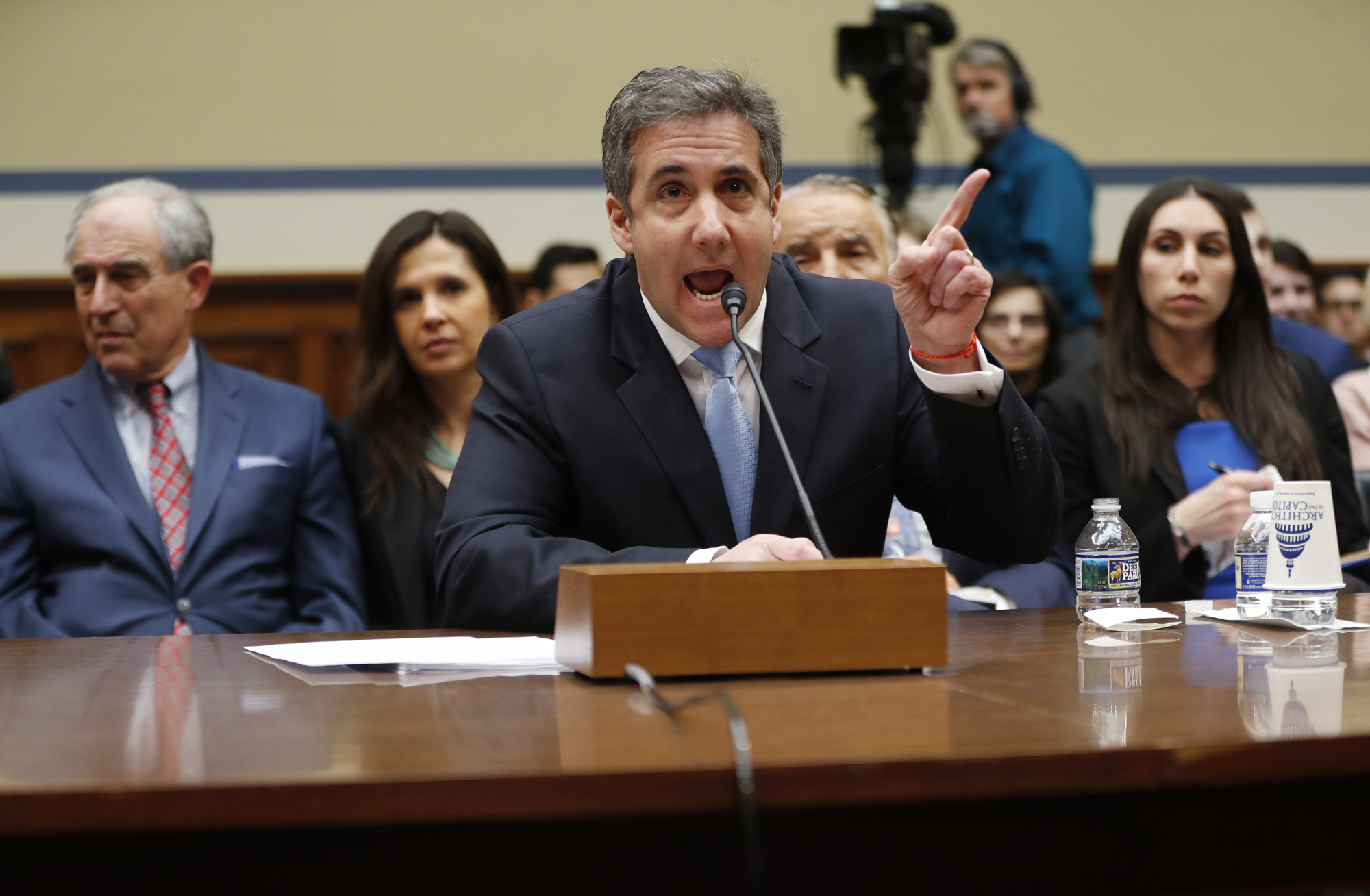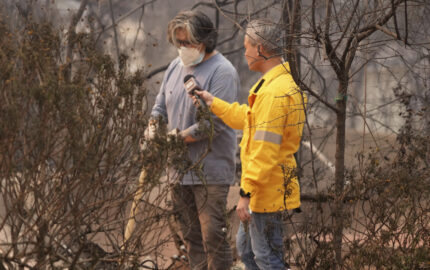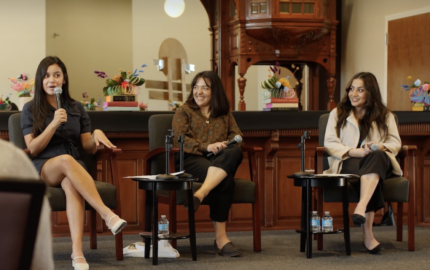A bombshell from BuzzFeed in January initially seemed to ensure that President Donald Trump would join Bill Clinton and Richard Nixon as presidents who were either impeached or forced from office during my lifetime. But it, like the reaction the story generated, illustrated a journalistic tendency to smooth away rough edges in ways that can make accurate stories less credible.
“President Donald Trump directed his longtime attorney Michael Cohen to lie to Congress about negotiations to build a Trump Tower in Moscow, according to two federal law enforcement officials involved in an investigation of the matter,” the BuzzFeed exclusive confidently asserted.
The bombshell quickly fizzled after Special Counsel Robert Mueller’s office refuted it. “BuzzFeed’s description of specific statements to the Special Counsel’s Office, and characterization of documents and testimony obtained by this office, regarding Michael Cohen’s congressional testimony are not accurate,” the statement read.
Jeffry Toobin spoke for many journalists—and media critics—when he said this on CNN: “This is a bad day for us. It reinforces every bad stereotype about the news media.”
Toobin, like too many of us, had gone from one extreme to another. The “big if true” stories were quickly replaced by an unhealthy reliance upon the integrity of Mueller’s office to keep us all straight. The episode illustrated that journalists, probably in an effort to make the many-tentacled Mueller probe easier to understand, had effectively shed the skepticism that is the hallmark of an adversarial press. We had ceded too much ground to one of the most powerful groups of prosecutors in U.S. history.
The irony is that the more we learn, the truer the BuzzFeed story sounds. As the website reported, Cohen believes Trump directed him to lie to Congress, and there are documents showing edits to Cohen’s prepared statement to Congress, documents that were reviewed by Trump lawyers at the time. That’s the heart of the BuzzFeed story, meaning the bombshell is more of a bombshell than the public has been led to believe since the statement from Mueller’s office.
The problem is that Buzzfeed’s writing rounded away the hard edges of its initial reporting.
Deeper in the story, investigative journalists Jason Leopold and Anthony Cormier wrote this: “This revelation is not the first evidence to suggest the president may have attempted to obstruct the FBI and special counsel investigations into Russia’s interference in the 2016 election. But Cohen's testimony marks a significant new frontier: It is the first known example of Trump explicitly telling a subordinate to lie directly about his own dealings with Russia.”
They have since defended their choice of words, claiming Cohen’s recent public testimony confirmed their word choice, when it actually undercut it. Cohen told Congress that while Trump didn’t explicitly say, “I want you to lie to Congress about this,” it was clear Trump wanted him to mislead about the Trump Tower Moscow timeline.
Cohen’s testimony proves BuzzFeed would have benefitted from more humility and a dialing back of the authoritative voice. Instead of writing “explicitly telling a subordinate to lie directly,” a sentence that said something like this would have made more sense: Cohen’s assertion that Trump told him to lie to Congress, which would be surbornation of perjury, would mark a new frontier in the obstruction of justice case prosecutors are pursuing in the Russia probe.”
The writing would have been clunkier, the narrative less smooth. But the story would have still been powerful—and more accurate, particularly given that the BuzzFeed writers did not know the precise words Cohen had used in his talks with the Mueller prosecutors. It likely would have also led the reporters and editors to include a paragraph or two explaining the difference between direct and indirect commands—each of which has been used as evidence in successfully prosecuted criminal cases—and a reminder that Cohen himself is a serial liar, meaning the edited documents and other types of hard evidence would be paramount in trying to prove Cohen’s claim.
No matter the media outlet, that type of careful writing would have been helpful. But it was especially important for BuzzFeed, because its (still) problematic decision to publish the Steele dossier gave rise to legitimate concerns the media outlet was all-too-willing to publish unverified accusations against Trump. Instead, BuzzFeed rounded out the edges and hurt the credibility of its otherwise well-reported story.
What BuzzFeed did on the Cohen-Trump story, the media writ large has done with the Russia investigation. We’ve given our audiences a sense that the final Mueller report will clear everything up, and that every discovery in the meantime is little more than rank speculation or unworthy of serious action now from the public or Congress.
That’s an unfortunate development, given that BuzzFeed has broken numerous stories about Trump lies and his pursuit of business deals in Russia deep into the presidential campaign. The New York Times documented collusion when it forced Donald Trump Jr. to release emails showing top Trump campaign officials met with a Kremlin-linked lawyer with the explicit purpose to work with a foreign adversary trying to undermine our democracy. Lester Holt of NBC News got President Trump to admit that the Russia probe was at least partly behind his decision to fire then-FBI Director James Comey.
That’s all on the record, because of dogged journalistic work. But journalists, I think in an attempt to cut through the noise and complexity of what we’ve been facing since 2016, have inadvertently undervalued that good, sometimes great work.
The truth is messy. It would serve us—and the public—better if we spent more time explaining that reality than shoehorning a mind-numbingly, complex, seemingly endless set of facts into a neat narrative that misleads more than clarifies.
“President Donald Trump directed his longtime attorney Michael Cohen to lie to Congress about negotiations to build a Trump Tower in Moscow, according to two federal law enforcement officials involved in an investigation of the matter,” the BuzzFeed exclusive confidently asserted.
The bombshell quickly fizzled after Special Counsel Robert Mueller’s office refuted it. “BuzzFeed’s description of specific statements to the Special Counsel’s Office, and characterization of documents and testimony obtained by this office, regarding Michael Cohen’s congressional testimony are not accurate,” the statement read.
Jeffry Toobin spoke for many journalists—and media critics—when he said this on CNN: “This is a bad day for us. It reinforces every bad stereotype about the news media.”
Toobin, like too many of us, had gone from one extreme to another. The “big if true” stories were quickly replaced by an unhealthy reliance upon the integrity of Mueller’s office to keep us all straight. The episode illustrated that journalists, probably in an effort to make the many-tentacled Mueller probe easier to understand, had effectively shed the skepticism that is the hallmark of an adversarial press. We had ceded too much ground to one of the most powerful groups of prosecutors in U.S. history.
The irony is that the more we learn, the truer the BuzzFeed story sounds. As the website reported, Cohen believes Trump directed him to lie to Congress, and there are documents showing edits to Cohen’s prepared statement to Congress, documents that were reviewed by Trump lawyers at the time. That’s the heart of the BuzzFeed story, meaning the bombshell is more of a bombshell than the public has been led to believe since the statement from Mueller’s office.
The problem is that Buzzfeed’s writing rounded away the hard edges of its initial reporting.
Deeper in the story, investigative journalists Jason Leopold and Anthony Cormier wrote this: “This revelation is not the first evidence to suggest the president may have attempted to obstruct the FBI and special counsel investigations into Russia’s interference in the 2016 election. But Cohen's testimony marks a significant new frontier: It is the first known example of Trump explicitly telling a subordinate to lie directly about his own dealings with Russia.”
They have since defended their choice of words, claiming Cohen’s recent public testimony confirmed their word choice, when it actually undercut it. Cohen told Congress that while Trump didn’t explicitly say, “I want you to lie to Congress about this,” it was clear Trump wanted him to mislead about the Trump Tower Moscow timeline.
Cohen’s testimony proves BuzzFeed would have benefitted from more humility and a dialing back of the authoritative voice. Instead of writing “explicitly telling a subordinate to lie directly,” a sentence that said something like this would have made more sense: Cohen’s assertion that Trump told him to lie to Congress, which would be surbornation of perjury, would mark a new frontier in the obstruction of justice case prosecutors are pursuing in the Russia probe.”
The writing would have been clunkier, the narrative less smooth. But the story would have still been powerful—and more accurate, particularly given that the BuzzFeed writers did not know the precise words Cohen had used in his talks with the Mueller prosecutors. It likely would have also led the reporters and editors to include a paragraph or two explaining the difference between direct and indirect commands—each of which has been used as evidence in successfully prosecuted criminal cases—and a reminder that Cohen himself is a serial liar, meaning the edited documents and other types of hard evidence would be paramount in trying to prove Cohen’s claim.
No matter the media outlet, that type of careful writing would have been helpful. But it was especially important for BuzzFeed, because its (still) problematic decision to publish the Steele dossier gave rise to legitimate concerns the media outlet was all-too-willing to publish unverified accusations against Trump. Instead, BuzzFeed rounded out the edges and hurt the credibility of its otherwise well-reported story.
What BuzzFeed did on the Cohen-Trump story, the media writ large has done with the Russia investigation. We’ve given our audiences a sense that the final Mueller report will clear everything up, and that every discovery in the meantime is little more than rank speculation or unworthy of serious action now from the public or Congress.
That’s an unfortunate development, given that BuzzFeed has broken numerous stories about Trump lies and his pursuit of business deals in Russia deep into the presidential campaign. The New York Times documented collusion when it forced Donald Trump Jr. to release emails showing top Trump campaign officials met with a Kremlin-linked lawyer with the explicit purpose to work with a foreign adversary trying to undermine our democracy. Lester Holt of NBC News got President Trump to admit that the Russia probe was at least partly behind his decision to fire then-FBI Director James Comey.
That’s all on the record, because of dogged journalistic work. But journalists, I think in an attempt to cut through the noise and complexity of what we’ve been facing since 2016, have inadvertently undervalued that good, sometimes great work.
The truth is messy. It would serve us—and the public—better if we spent more time explaining that reality than shoehorning a mind-numbingly, complex, seemingly endless set of facts into a neat narrative that misleads more than clarifies.



